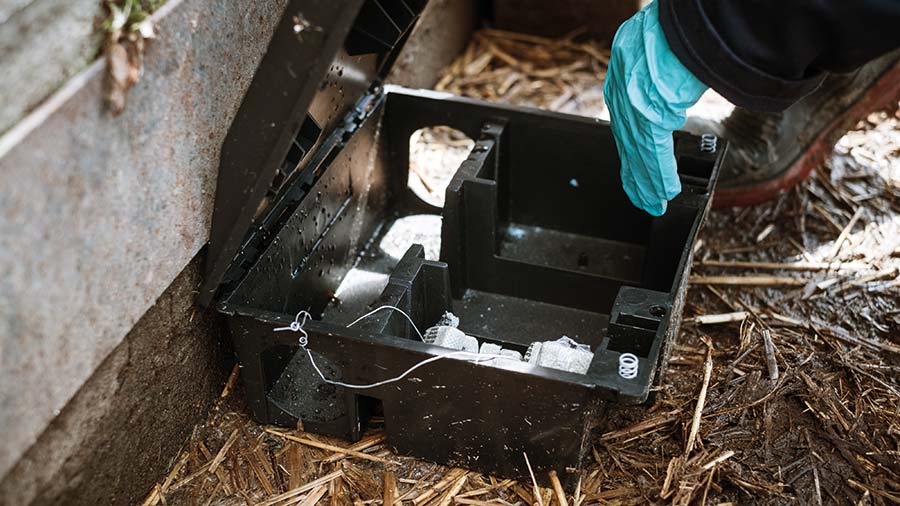Tougher rules to be imposed for use of rodenticides on farm
 © MAG/Colin Miller
© MAG/Colin Miller Farmers, gamekeepers, and pest control businesses will soon have to be trained and certified to use certain rodenticides.
The Campaign for Responsible Rodenticide Use UK (CRRU) stewardship group has announced that from January 2026 all users of second-generation anticoagulant rodenticides (SGARs) products will need to hold an up-to-date training certificate.
Certificates must be updated every five years unless an individual is also a member of an approved continuing professional development scheme.
See also: Research targets pheromones to control key arable pests
Approved training courses can be found on the CRRU website.
CRRU chairman Alan Buckle said the changes are designed to strengthen stewardship and protect essential uses of rodenticides for all professional users, especially farmers.
Dr Buckle added: “Another important strengthening measure, announced in May 2023, was that from July 2024 none of the five SGARs available in the UK can be purchased for use in ‘open areas’ away from buildings.”
The NFU has complained that the CRRU’s decision to introduce an additional certification requirement was made without any formal consultation with farming unions, trade associations or farm assurance schemes.
NFU vice-president David Exwood said: “Farmers and growers need to tackle rodent pests on farm and they use control methods responsibly.
“This is demonstrated via membership of a number of farm assurance schemes where our members demonstrate knowledge, competence, and stewardship across a vast array of farming practices.”
The Ulster Farmers’ Union (UFU) has said it does not support the changes to requirements that are due to be implemented from 2026.
UFU deputy president William Irvine said: “Farmers and growers understand the impact rodenticides could have on wildlife if it is not used responsibly, and through their participation in [the] Farm Quality Assurance Scheme (FQAS), they minimise the impact of rodenticides on wildlife.
“However, these new changes will affect farmers and growers’ ability to manage their own pest control and will create another cost for the farm business when finances are already under pressure.”
